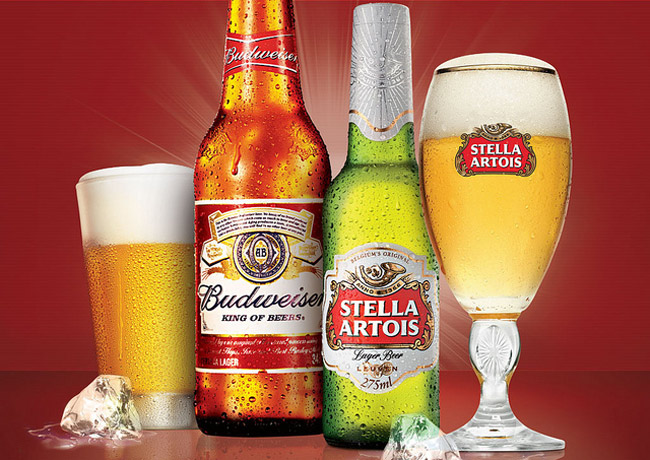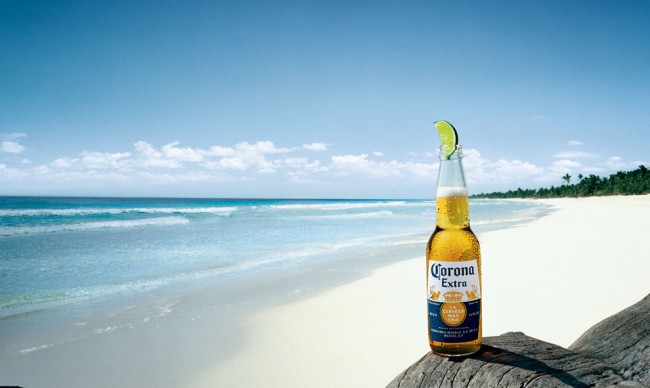
By Wenonah Hauter
Millions of Americans will enjoy a beer tonight. The vast majority of them probably won’t realize that the wide variety of brands they see in the stores, bars, and restaurants come from just two foreign-based multinational companies that control 80 percent of the U.S. market.
Many of the most popular beer brands appear unchanged over the years, and there’s been a recent explosion in the variety of beers available. But behind the label, the industry has become a global and increasingly monopolized affair, just like the rest of our food system.

But AB InBev seems intent on forging ahead with the deal. It’s rearranging the proposed takeover to address Washington’s concerns by promising to sell a factory and the Corona and Modelo brand rights in the United States to another company. Even these changes would leave AB InBev in control of nearly everyone’s beer cooler. The already-vast brewer would have yet more power to raise prices unilaterally.
AB InBev is truly a beverage behemoth. It owns over 200 brands worldwide including Budweiser, Becks, Stella Artois, Boddingtons, Löwenbräu, Michelob, and St. Pauli Girl. After this merger, its main competition would be UK-based brewer SABMiller, which owns 367 global brands, including Coors Light, Fosters, Miller Light, and Milwaukee’s Best.
The beer industry’s concentration has grown alongside an explosion in locally brewed craft beers, but the nearly 2,000 independent craft breweries comprise less than 6 percent of the U.S. market.
 Why does it matter who owns our beer? According to a recent report by the New America Foundation, the industry’s consolidation has raised prices and narrowed consumer choice. After InBev purchased Anheuser-Busch in 2008, a long-running price war between Anheuser-Busch and SABMiller ended, and both began to raise their prices simultaneously.
Why does it matter who owns our beer? According to a recent report by the New America Foundation, the industry’s consolidation has raised prices and narrowed consumer choice. After InBev purchased Anheuser-Busch in 2008, a long-running price war between Anheuser-Busch and SABMiller ended, and both began to raise their prices simultaneously.
What’s worse, this consolidation problem spans the whole food system. When a few large companies own and control our meat, milk, and processed foods, it’s bad for consumers and the farmers who bring us the food. The big players get to make all the decisions, from pricing to distribution, and consumers and producers have no choice but to go along for the ride.
Consolidated markets cease being fair. The high concentration of companies that control a majority of our food has become a foodopoly — an alliance of agribusiness and big food companies that controls everything we eat, every step of the way, from seed to table.
Just how highly concentrated is our marketplace for food? Two out of three pork chops are sold by just four companies. It’s even worse for beef, with four companies processing 80 percent of all U.S. cattle. When markets are this concentrated, the big players make all the rules in the marketplace to the detriment of farmers and consumers. That’s why a chicken farmer receives about 25 cents on every 12-piece KFC chicken bucket.
When you look behind the multitude of brands in the supermarket and find just a handful of companies, it’s easy to see why small farms have disappeared. Over decades of policy shaped by the largest food and agriculture corporations, these companies have managed to squeeze more and more from the livelihoods of farmers. The meatpackers and other food manufacturers pay farmers lower prices, and farmers are forced to turn their livestock operations into factory farms so that they can make ends meet. Consumers aren’t the ones benefiting off of the low, low prices farmers get for their products — the middlemen are.
Who controls your beer might seem a frivolous question. But who controls our food supply is no laughing matter. The Justice Department must challenge the growing food monopolies to protect consumers. Blocking this merger would mark a first step in that direction.
![]()
Wenonah Hauter is Executive Director of Food & Water Watch and author of “Foodopoly: The Future of Food and Farming in America.” This piece was distributed by OtherWords.






























confidential says
Right on DOJ! Keep up the good work against monopoly.
Budwiser/InBev or Constellation USA beer/wine corporations have no business investing over 400 millions in Piedras Negras Mexico Modelo’s beer plant to produce more Corona’s and Modelo’s for the USA consumer market!! Expand your Budwiser/Inbev plant right here in the USA and create those jobs so badly needed at home! Or maybe we need to stop buying Buds, Corona’s Stella, Artois etc. We need to stop all this outsourcing to recover our jobs!
Samuel Smith says
If I can’t lift it with one, or possibly two hands then that’s generally where I draw the line. Because that’s a really big beer.
confidential says
Also the team Obama-Hagel drawing the line (not only on bigh beer) but also in nuclear proliferation! About time and thank you! http://www.nytimes.com/2013/03/17/world/europe/with-eye-on-north-korea-us-cancels-missile-defense-russia-opposed.html?partner=rss&emc=rss&_r=0
Howard Duley says
Wow, this piece was an eye opener. Thanks for the info. From now on its Sam Adams for me.
Sherry Epley says
This story points out exactly what happens when government regulations are removed. It would be wonderful if all businesses were owned and managed by ethical people who always “do the right thing” for the consumer and their employees. . . BUT that is NOT the nature of greedy humans in the USA. The foundation of the Tea Party suffers this huge flaw.
r&r says
This is another example of unions and their contracts that make industries to go off shore.. Like the auto industry there are so many demands made for not much work , companies go elsewhere.. Recertify>>
ECK says
Omigod…. Beer is a monopoly…. pretty soon ….they”ll tell us how much we can, must, need to drink…. oh wait a minute big government already wants to to do/does that. Cmon folks if beer gets too expensive people will change to wines and/or liquor and or new companies will start up even faster than they already are being started.